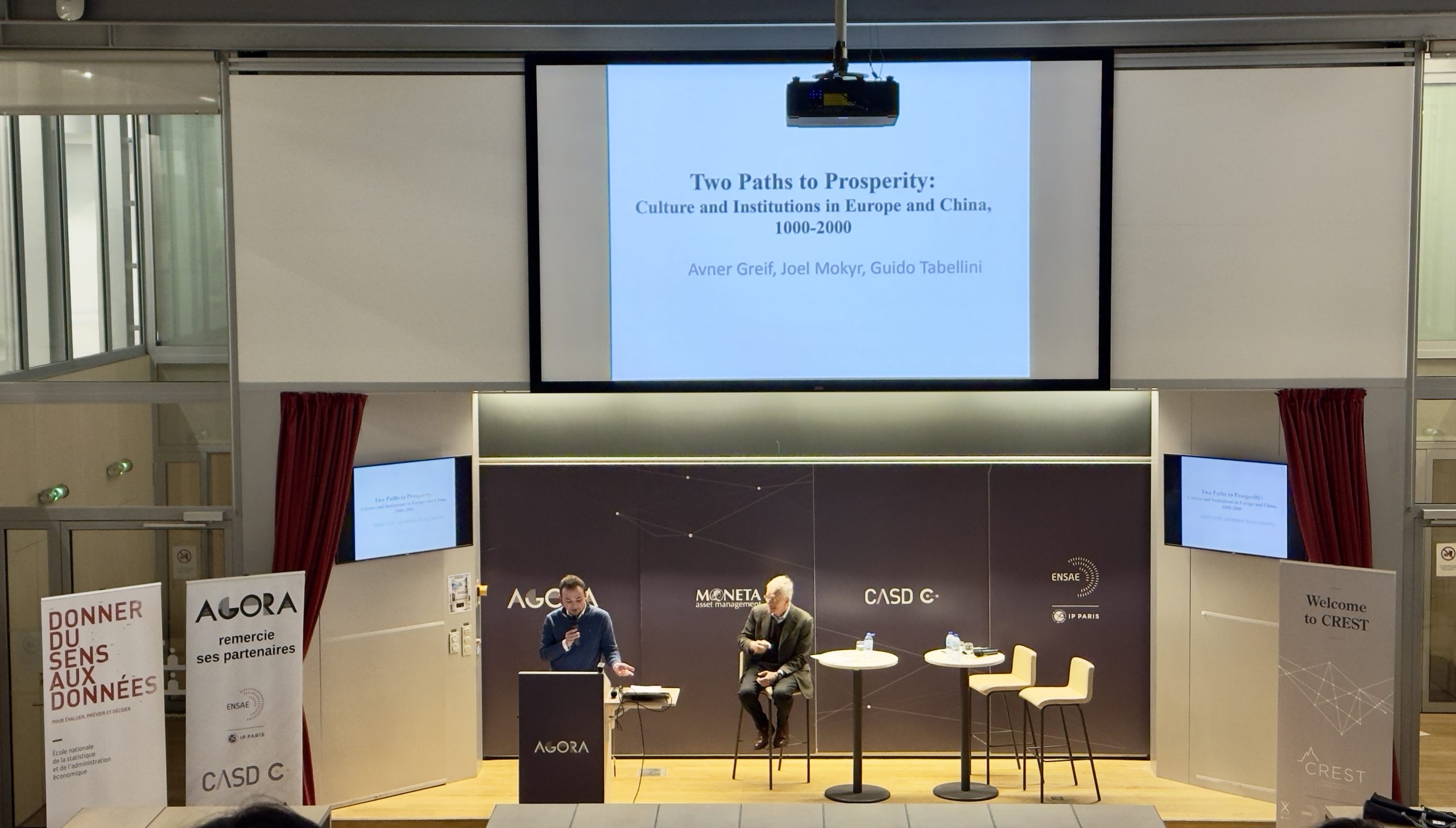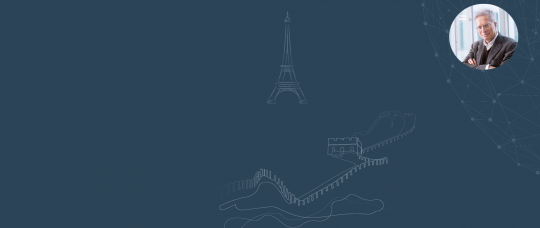On February 10, 2025, CREST and Institut Polytechnique de Paris partnered with ENSAE Paris and the AGORA association from ENSAE Paris to organize a scientific conference in honor of Guido Tabellini, a distinguished professor from Bocconi University. This event brought together researchers and students for an engaging discussion on key economic and political science issues shaped by Tabellini’s work.
The conference featured a series of presentations and discussions, highlighting Tabellini’s contributions to political economy, economic institutions, and policy-making. The event provided a unique opportunity for young researchers and students to interact with a leading figure in the field, fostering an enriching intellectual exchange.
Presentation: The Clan and the Corporation
Before starting his presentation, the conference began with Arnaud Pandevant, a current PhD student from CREST-École polytechnique who introduced Guido Tabeliini’s curriculum and research activities.
During the conference, Guido Tabellini presented his forthcoming Princeton University Press book “Two Paths to Prosperity: Culture and Institutions in Europe and China, 1000-2000” This work, developed with Avner Greif and Joel Mokyr, explores the historical divergence in economic and institutional development between China and Europe over the past millennium.

Tabellini examined how social organizations inherited from religious beliefs shaped economic outcomes, emphasizing the distinction between clans—which dominated local governance in China—and corporations, which played a key role in Europe’s economic and political development. His presentation traced how these social structures influenced state formation, governance, and innovation, ultimately contributing to the “Great Divergence” that saw Europe industrialize ahead of China.
His research delves into the impact of kinship-based networks in China that sustained local cooperation but limited institutional flexibility, while Europe’s associational culture, built on corporate institutions like guilds, universities, and self-governing cities, fostered economic dynamism and state capacity.
Seminar on “Disengaging from Reality: Online Behavior and Unpleasant Political News”
In addition to the conference, Guido Tabellini continued his engagement at CREST with a seminar on February 11, 2025, presenting his latest research titled: “Disengaging from Reality, Online Behavior and Unpleasant Political News.”
This study explores why, despite scandals and misconduct, partisan supporters often remain loyal to their favored political candidates. Tabellini and his co-author, Leonardo D’Amico (PhD candidate at Harvard University), analyze online engagement with negative political news during the 2016 U.S. Presidential Election. Their findings reveal that partisan users are more likely to ignore negative news about their preferred candidate while actively seeking out such news about their opponent—a behavior they define as a political “ostrich effect.”
Furthermore, when partisans do engage with unfavorable news about their own candidate, they tend to rationalize the behavior, react negatively, and frequently cite scandals of the opposing candidate as a form of counterargument. This behavior aligns with a model in which individuals experience psychological discomfort when exposed to dissonant information while finding pleasure in reaffirming their own beliefs.
Importantly, the study highlights how social media platforms exacerbate ideological segregation by amplifying users’ pre-existing biases. Since online interactions provide positive reinforcement for confirming one’s own views, these platforms become echo chambers that discourage engagement with opposing perspectives.
A Thought-Provoking Discussion
Both the conference and seminar sparked lively discussions among participants, emphasizing the broader implications of Tabellini’s research on political behavior, digital media, and democratic accountability. The findings resonate with contemporary debates on misinformation, polarization, and the role of social networks in shaping political discourse.
CREST, Institut Polytechnique de Paris, ENSAE Paris, and AGORA were honored to host Guido Tabellini and look forward to continuing collaborations that advance the understanding of economic and political dynamics in the digital age.

